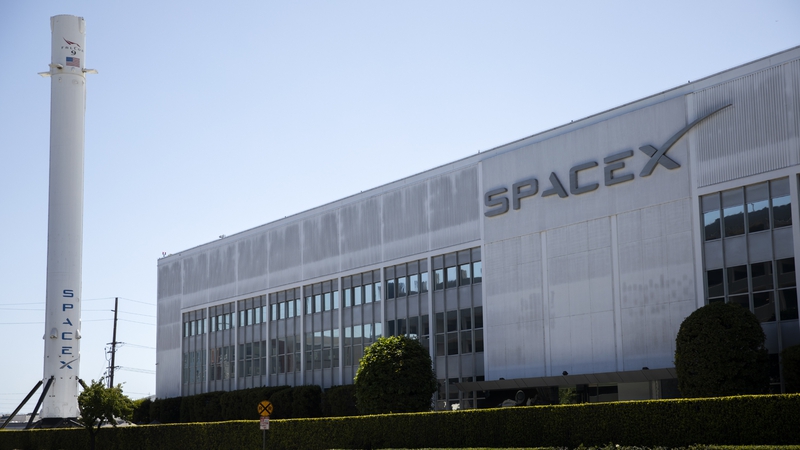British Gas profits leap from £72m to £751m in a year
Kalyeena Makortoff
Thu, 15 February 2024

The sharp increase in British Gas profits pushed Centrica’s pre-tax profit to £6.5bn for 2023, compared with a loss of £240m a year earlier.Photograph: Neil Hall/EPA
Annual profits at British Gas have soared nearly tenfold after it tried to recoup costs from the energy crisis, while its parent company announced another £144m payout to shareholders.
Centrica released figures on Thursday showing that British Gas, which supplies energy to UK households and businesses, showed its profits jumped to £751m in 2023, up from £72m a year earlier.
The big increase in earnings came after the regulator, Ofgem, raised the energy price cap and allowed the company to recoup some of the costs of having to sell energy below wholesale price to its 10 million customers during the energy crisis.
Suppliers were forced to protect households from a spike in prices, which rose as a result of the Covid-19 lockdowns and Russia’s invasion of Ukraine, causing dozens of companies to fail.
The price cap rise, and subsequent increase in British Gas profits, pushed Centrica’s pre-tax profit to £6.5bn for 2023, compared with a loss of £240m a year earlier. The company’s preferred figure, which allows for bespoke adjustments, show profits fell 17% to £2.8bn for the year to December.
The chief executive, Chris O’Shea, said efforts to recoup costs supported British Gas profits only in the first half of the year, and the division took a £200m hit in the final six months of 2023.
He defended the remaining profits, which enabled Centrica to pay a final dividend worth £144m to its shareholders. “I said this befor and I want to take this opportunity to say it again: to be sustainable you must make a profit. Which is super important because every consumer in the UK is paying £88 for the failure of other energy suppliers in the last few years. If more companies fail, these costs go on to customer bills.”
The final dividend brings Centrica’s one-off payouts to investors to £217m this year. Centrica said it was also voluntarily putting aside £40m to support customers, on top of the £100m spent in 2023.
O’Shea said the company’s strong performance was unlikely to last but he was confident shareholders would continue to reap rewards.
“As you would expect, sharply lower commodity prices and reduced volatility will naturally lower earnings in comparison to 2023 as we return to a more normalised environment,” he said.
“Our performance over the past year has reinforced our confidence in delivering against our medium-term sustainable profit ambitions and continuing to create value for shareholders.”
The sharp increase in British Gas profits prompted a backlash from the union Unite, which is calling for the company to be nationalised.
“Centrica is still raking in astonishingly high profits off the back of exorbitant energy bills that are nearly double what they were three years ago, Unite’s general secretary, Sharon Graham, said.
“There is no point beating around the bush: the only way to stop households and businesses being ripped off by the profiteers in our energy supply chain is public ownership. It is an absolutely affordable option that would protect the national interest. Our politicians need to decide whose side they are on and make the right choices.”
British Gas profits surge more than eightfold to £800m
- British Gas owner Centrica could claw back money it lost during energy crisis
British Gas owner Centrica benefited last year from being able to claw back money that it had lost during the energy crisis.
Adjusted operating profit in the business’s retail unit, namely British Gas, soared from £94million to £799million as a result of the cost recovery, results published on Thursday show.
The group was one of several energy suppliers regulator Ofgem permitted to recover costs that they had racked up during the crisis.
However, Centrica' annual adjusted pre-tax profit fell to £2.8billion, compared with £3.2billion the year before.
Centrica said commodity prices had been 'significantly lower' than the previous year when gas prices spiralled at the outbreak of the Ukraine war.

Pay matters: Last month, Centrica boss Chris O'Shea told the BBC his £4.5m pay package for last year was 'impossible to justify'
This was lower than the record £969million that the business had made in the first half of the year alone.
This is because British Gas was allowed to recover the extra £500million through the price cap in the first six months of the year.
On a pre-tax basis, the company swung to a pre-tax profit of £6.47billion from a £383million loss a year earlier, driven by its British Gas energy unit.
Centrica shares rose 4.11 per cent or 5.52p to 139.92p on Thursday, having surged over 40 per cent in the last year.
Boss Chris O'Shea, said: 'We are pleased to report that this strong underlying operational performance has continued into early 2024.
'As you would expect, sharply lower commodity prices and reduced volatility will naturally lower earnings in comparison to 2023 as we return to a more normalised environment.
'Our performance over the past year has reinforced our confidence in delivering against our medium-term sustainable profit ambitions and continuing to create value for shareholders.'
Centrica, which returned £800million of cash to shareholders last year, lifted dividends from 4p a share from 3p the previous year.

On the up: Adjusted operating profit in the business’s retail unit, namely British Gas, soared from £94m to £799m
It added: 'Whilst we are starting to see material commodity price falls, today we have committed another £40million, bringing the total voluntary customer support to £140 million, more than any other supplier.'
It said over 5million UK energy customers had migrated to its new technology platform during the period.
Centrica also said it had paid over £1billion in tax in the last year and created 1,000 new UK based jobs.
Andrew Keen, a managing director at Edison Group, said: 'Centrica's FY23 results demonstrate the company's ability to create value through a balanced portfolio, despite facing various challenges.
'The adjusted operating profit of £2.8billion, while experiencing a slight 3 per cent decrease from the previous year when excluding disposed assets, reflects a resilient performance.
'Notably, the retail sector saw a significant £700million increase, with British Gas Services & Solutions returning to profitability.
'However, optimization and infrastructure faced challenges due to lower prices and market volatility, declining £300million and £900million, respectively.'
He added: 'CEO Chris O'Shea has praised the company's resilience, attributing it to Centrica's balanced portfolio and effective execution of its strategic plan, enacted in July 2023.
'Looking ahead, while the company anticipates continued strong performance, it remains cautious, expecting a medium-term expectation of £150-£250million in retail, mindful of one-off benefits in the past year.
'Despite uncertainties, Centrica 's solid foundation and strategic alignment position it well for navigating future challenges.'
Last month, British Gas was named as the worst energy firm for customer satisfaction by consumer group Which?.
It found there was little to separate the remaining firms with the lowest customer scores – Boost, Scottish Power, Ovo Energy, Shell Energy, EDF Energy and E.ON Next.
At the other end of the scale, Octopus Energy, Ecotricity and E (Gas & Electricity) achieved the highest customer scores.
British Gas, which supplies more than a fifth of households in Britain, received an overall score of 56 per cent.
Last month, O'Shea told the BBC his £4.5million pay package for last year was 'impossible to justify.'
Centrica boss renews calls for ‘social tariff’ amid higher British Gas profits
15 February 2024

Cheaper energy for the worst off in society is ‘the best thing we can do for consumers’, Chris O’Shea said.
The boss of British Gas’s parent company has renewed calls for a “social tariff” which will let poorer Britons pay less for their gas and electricity, as the energy supplier revealed a big jump in profit.
Centrica chief executive Chris O’Shea said that a special tariff for the worst off would be “the best thing we can do for consumers”.
It came as it was revealed Centrica’s retail arm, which is mainly made up of British Gas, saw profit soar from £94 million in 2022 to £799 million last year.
All of this profit came from the first half of the year.
Most of this was because of the way the energy price cap works.
British Gas and other energy suppliers were in the first half of last year allowed to recoup some of the costs they had during the energy crisis.
For British Gas this added £500 million to its bottom line.
Mr O’Shea said that companies have to make a profit in order to stay healthy.
The collapse of dozens of unhealthy suppliers in the last couple of years has cost households around £88 each.
But more is needed to protect the poorest, the chief executive said.
“The poorest in society are really struggling but it’s not just the energy. It’s energy, it’s rent, it’s mortgages, it’s food and all manner of costs,” he said on a call with reporters.
“What I’m focused on is how do we fix this in energy and that’s why we need a social tariff, that’s why we need the standing charge to disappear.

“I think that’s the best thing we can do for consumers. That will reduce the cost for the poorest in society, the people that are really, really struggling.”
Centrica’s adjusted profit fell to £2.8 billion before tax, compared with £3.2 billion the year before, the business revealed on Thursday.
On a statutory basis thanks to the way that Centrica buys energy in advance it made a profit of £6.5 billion last year before tax, up from a loss of £383 million in 2022.
The business said that it had hired 700 new people to work in its British Gas call centres.
In part thanks to that it saw an 8% fall in the amount of complaints it got per customer.
“We take care of our colleagues, they take care of our 10 million customers and the resulting performance takes care of the shareholders,” Mr O’Shea said.
The company revealed that customers used a little less energy last year than they had in 2022, but Mr O’Shea said it was impossible to say how much of this was thanks to efficiency upgrades, and how much was because of higher costs.


:quality(70)/cloudfront-eu-central-1.images.arcpublishing.com/irishtimes/IVXBUPB3ZNAATGM7EYEZJRPTBI.jpg)









